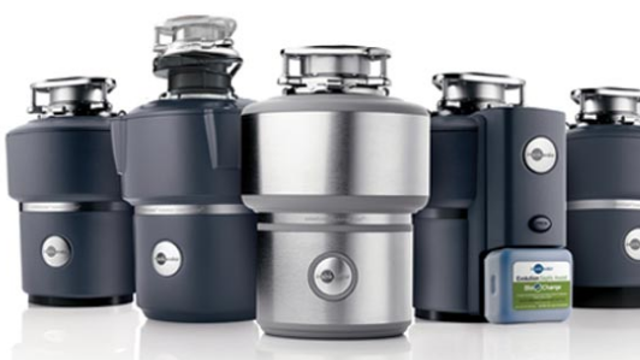InSinkErator President on Keeping Manufacturing in the U.S.
InSinkErator has been manufacturing garbage disposers in Racine, Wisconsin for more than 75 years – and the company’s president Tim Ferry says there are no plans to move production overseas.
“[W]e have over 1,000 employees in Racine here for this production facility. We are very automated, but in terms of serving our customers in North America, this is by far the most cost-effective way to do that from a logistical standpoint. And the demands of our channel partners and what they expect, this is where we need to be in serving them in a timely fashion at the rates they expect,” says Ferry in a Conference Room interview with FBN’s Jeff Flock.
Ferry says keeping production in the U.S. enables InSinkErator to ensure a high level of quality.
“We have great quality control systems in this facility. We have all of our design engineers [and] manufacturing engineers here, so it’s great to be able to communicate, go across the aisle and talk to them if … any issues pop up,” says Ferry.
InSinkErator has faced its own share of challenges, however. The company introduced its higher-end Evolution in 2006 – and found itself in the position of having to upsell consumers on more costly products during the recession.
“We had to step up our efforts in terms of communicating the benefits of the product, because a lot of our business is still tied to replacement. So if someone wants to replace one of our [lower-end] Badger products … we need to give them a reason step up to Evolution,” says Ferry. He says the Evolution line can cost more than $100 over the Badger products.
“You have to communicate the benefits and what those are in terms of messaging and making sure they understand that value, to be able to trade up to the Evolution series,” says Ferry.
With the company message nailed down, Ferry sees a big opportunity ahead for InSinkErator. He says only 52% of American households own garbage disposers, compared to the 69% who have dishwashers.
“It’s very convenient in terms of getting rid of your food scraps. Rather than throwing them into the trash where they can create a smelly mess, attract rodents and pests in the garage … instead throw that food waste down the food waste disposer where it can actually get converted to renewable energy through the wastewater treatment process,” says Ferry. “So it’s not only a great convenience and hygienic opportunity for the consumer, but it’s very friendly from an environmental perspective, owning a disposer.”




















